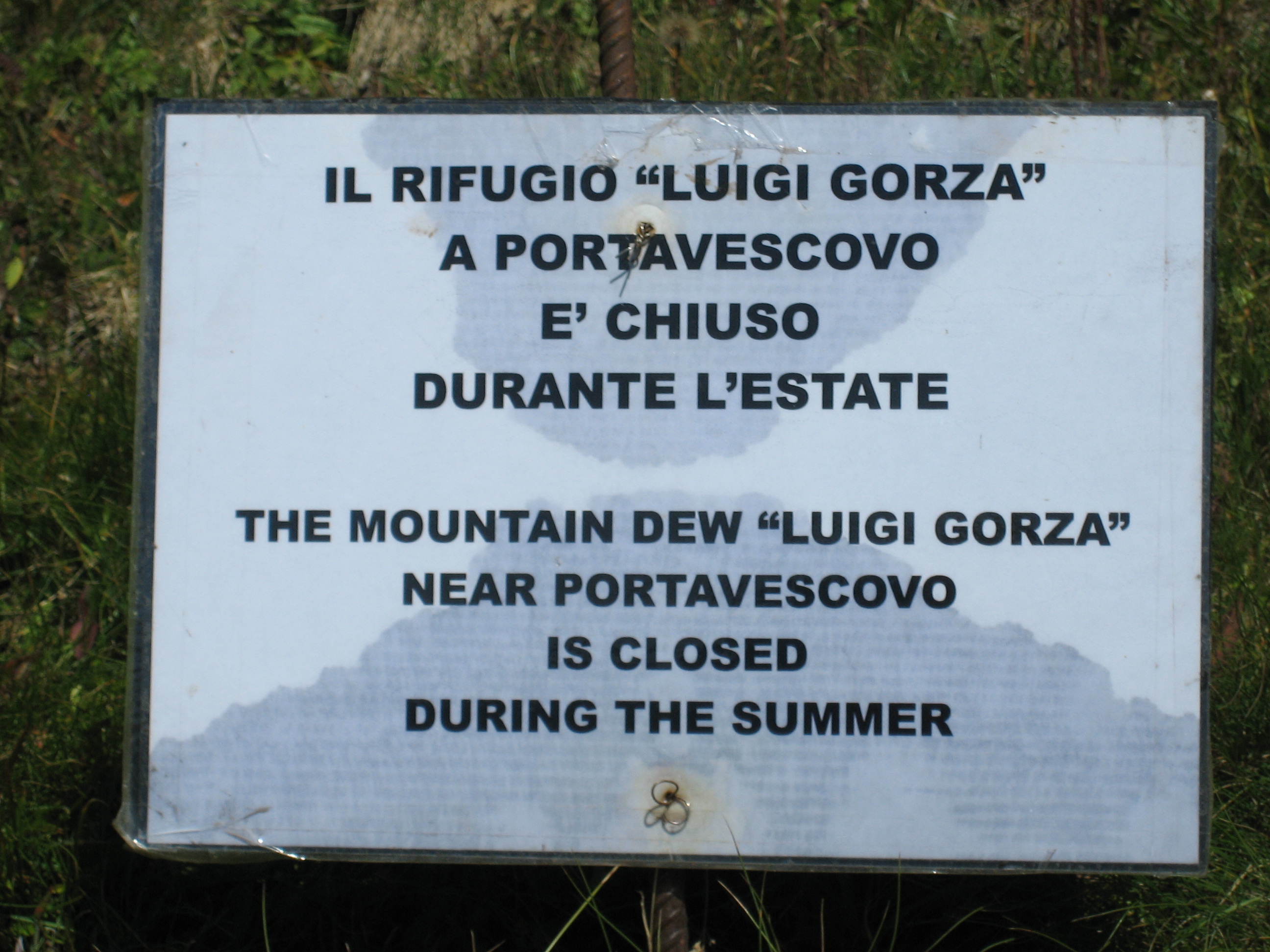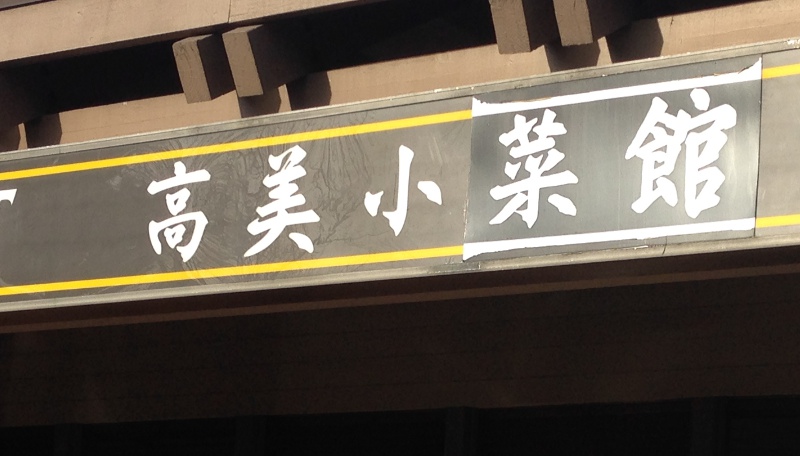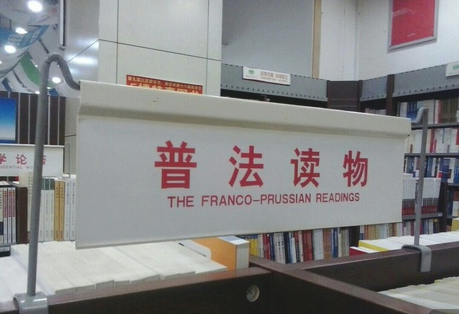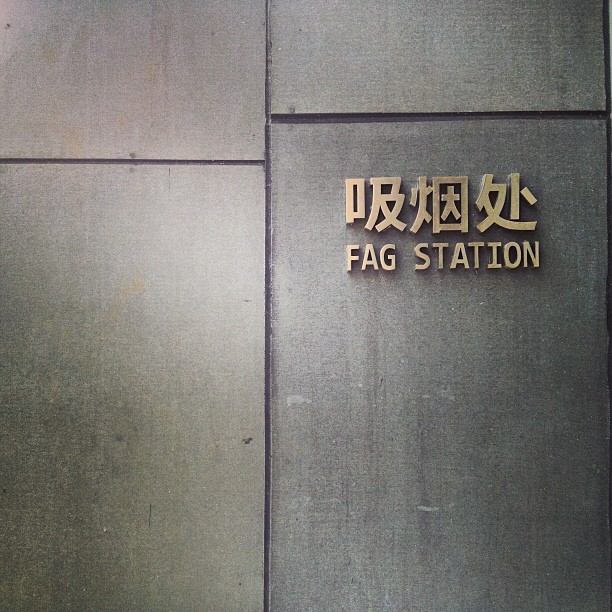Archive for Lost in translation
Gourmet Chinese cookshop
Bruce Balden sent in this photograph of a sign on a restaurant in the Vancouver area:
Read the rest of this entry »
"People mountain, people sea" and "let's play"
Stephan Stiller says that my post on "Good good study; day day up" reminds him of "people mountain, people sea" (rénshānrénhǎi 人山人海), i.e., "crowded; packed; a sea of people". This is another fairly complex Chinglishism that has entered the vocabulary of many English speakers who know no Chinese. It was popularized by a Hong Kong music production company that took this expression as its name, and there was also a Hong Kong film that used this expression as its title.
Read the rest of this entry »
Please don't do nothing here: a Bengali conundrum
Sreekar Saha sent in this sign and expressed puzzlement over the English translation:
Read the rest of this entry »
Chicken framework / rack / skeleton / trunk / carcass / whatever
Michael Robinson recently went to an interesting Toronto restaurant called Ten Mile Aroma, whose menu can be found online here. Micheal's attention was drawn to these two menu items:
137. Fried Spicy Chicken Framework (làchǎo jījià 辣炒鸡架)
138. Chicken Racks with Soya Sauce (jiàng jījià 酱鸡架)
According to Michael, a reviewer who visited the restaurant commented that he asked about the Chicken Framework and got the reply "Just bones, no meat". Michael says he's sure that he saw someone order one of these, and they brought a plate of chicken bones over to him.
Neither from the Chinese term itself nor from the English translations (both on the menu and online) is it very self-evident just what is at issue here. Why would anyone want to order a plateful of chicken bones?
Read the rest of this entry »
Bean crud
Arnold Zwicky kindly called the following choice Chinglish label to my attention:
Read the rest of this entry »
The Franco-Prussian Readings
Wicky Tse and Cheng Fangyi both sent me this photograph taken in a bookstore located in the central business district of Xinjiekou, Nanjing, China:
Read the rest of this entry »
The mountain dew is closed
 It is not just the disaster of Chinese-English translation that provides us with source material for the huge fund of hilariously inappropriate texts that we tag with Lost in Translation here on Language Log. Spanish provides them too. And here is one from Italian. What could possibly be the explanation for a failure as gross as translating RIFUGIO ("refuge") by the words "MOUNTAIN DEW"? What did they mean to put? Coca-Cola? Dr. Pepper?
It is not just the disaster of Chinese-English translation that provides us with source material for the huge fund of hilariously inappropriate texts that we tag with Lost in Translation here on Language Log. Spanish provides them too. And here is one from Italian. What could possibly be the explanation for a failure as gross as translating RIFUGIO ("refuge") by the words "MOUNTAIN DEW"? What did they mean to put? Coca-Cola? Dr. Pepper?
It seems almost a shame to solve the mystery, yet I believe I can. And just as when one explains a conjuring trick, it's a total let-down. But this is Language Log: we aim to inform, not just to titillate. Not that there's anything wrong with that—in a well-balanced life there should be some titillation as well. If you would prefer titillation to information right now, try to work out the source of the error for yourself before you read on.
Read the rest of this entry »
Urine meat balls
Bob Ramsey sent in the following photograph of a portion of a Chinese restaurant menu (source; originally from engrish.com):
Read the rest of this entry »
Japanesespanishmackerel
This will be a mini-disquisition on fish terminology, focusing on one particular species.
Reader hanmeng, after seeing a reference to bàyú 鲅鱼 (a kind of fish — discussion below) in the opening scene of the 32nd episode of " Méndì" 门第 ("family status; pedigree; ancestry; lineage; families related by marriage equal in social status" — title of a popular TV drama series), googled to find what the equivalent word is in English, and was directed to Baidu (a search engine for Chinese-language websites), where they render it as "Japanesespanishmack—erel".
Read the rest of this entry »
French seafood shucking soon
Jeroen van de Weijer writes, "This morning I came across two signs in my street, Mengzi Lu in Shanghai":
Read the rest of this entry »








